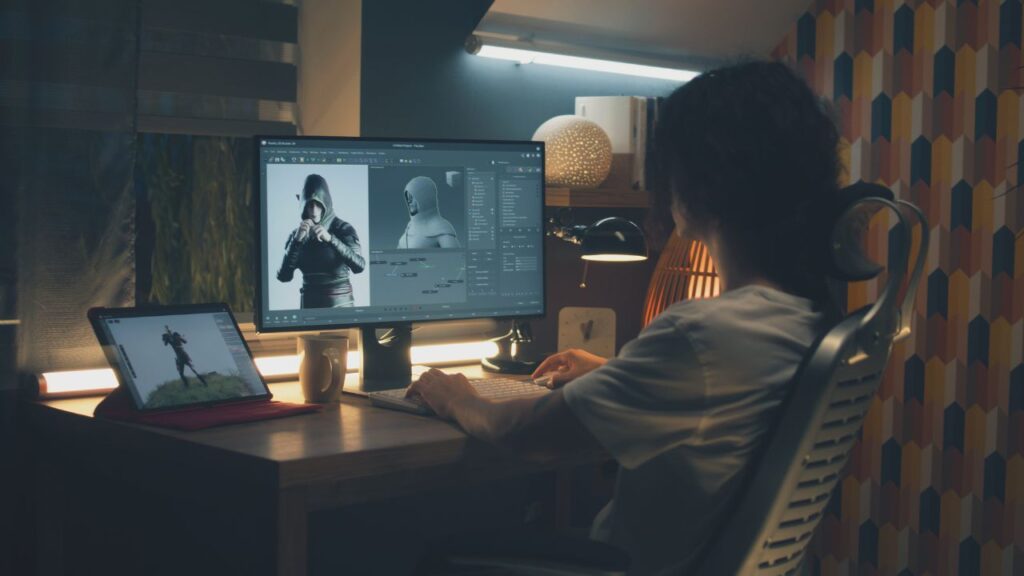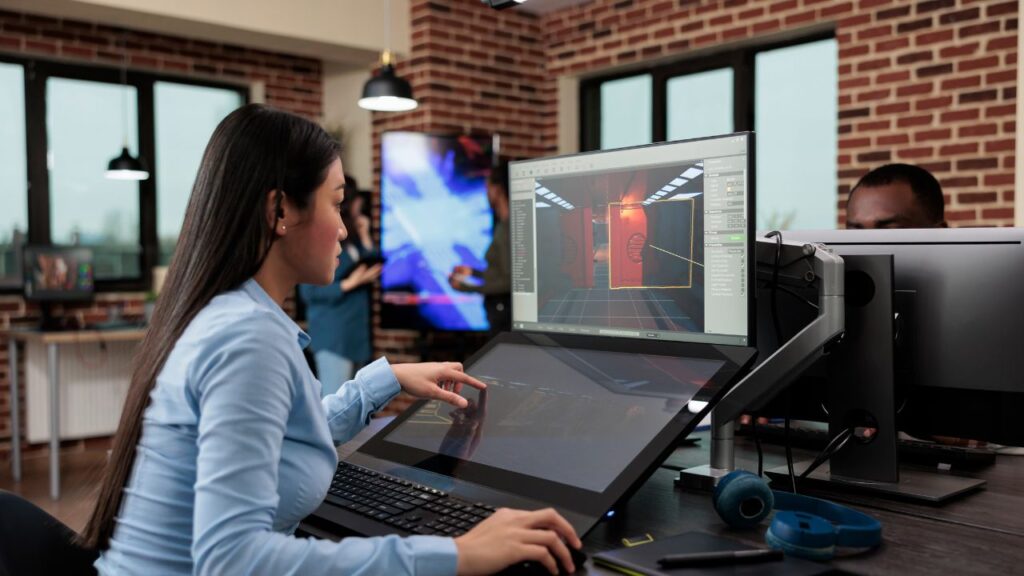Game jams throw you into 48 hours of pure creative chaos where you have to build a complete game from scratch. Most people jump in unprepared and end up stressed, exhausted, and with an unfinished mess instead of a playable game.
The key to surviving a game jam is having a solid plan that covers everything from picking the right team to managing your time and keeping your energy up throughout the weekend. Without proper preparation, even experienced developers can crash and burn when the pressure kicks in.
This guide walks you through proven strategies that successful game jammers use to create amazing games while staying sane. You’ll learn how to set yourself up for success before the jam starts and discover techniques to keep yourself motivated when things get tough during those long coding sessions.
What Makes a Game Jam Team Actually Win?
Success in game jams depends on smart planning and teamwork. These four key areas help developers finish strong projects within tight deadlines.
How Do You Manage Time When Every Hour Counts?
Time management makes or breaks game jam projects. Smart developers break their time into clear chunks for each task.
The most successful teams spend the first few hours planning. They write down what they want to build before they start coding. This saves time later when pressure builds.
Use the 80/20 rule for game jams. Spend 80% of your time on core features that make the game playable. Save 20% for polish and bug fixes.
Set hourly check-ins with your team. Ask what each person finished and what they need help with. This keeps everyone moving forward together.
Sleep matters more than most people think. Teams that sleep 4-6 hours each night work better than those who stay up all night. Tired developers make more mistakes.
Why Does Team Chemistry Beat Individual Skill?
The best game jam teams mix different skills rather than having everyone do the same thing. Look for people who can code, make art, design levels, and handle sound.
Pick teammates who communicate well under pressure. Game jams get stressful fast. Teams that talk through problems finish more projects than those who work alone.
Choose people who match your energy level. If you work best in short bursts, find others who do the same. If you prefer steady work, team up with people who think the same way.
Keep teams small. Three to four people work better than larger groups in game jams. More people means more coordination and slower decisions.
Trust your teammates to handle their parts. Micromanaging wastes time that could go toward building the game.
How Small Should You Think to Actually Finish?
Most game jam failures happen because teams dream too big. Start with the smallest possible version of your idea that still feels fun to play.
Write down your core game idea in one sentence. If you need more than one sentence, the idea is too complex for a game jam.
Focus on one main mechanic that players will use over and over. Build that mechanic first and make it feel good before adding anything else.
Plan for setbacks. Things always take longer than expected. Cut features early rather than rushing everything at the end.
Ask yourself this question every few hours: “If we had to submit right now, would we have a complete game?” If the answer is no, cut more features.
What Prototyping Tricks Save Hours of Work?
Start with the riskiest part of your game first. If you are not sure something will work, test it in the first few hours rather than hoping it works later.
Use placeholder graphics for everything. Gray boxes and stick figures work perfectly for testing game mechanics. Pretty art comes after the game plays well.
Build vertical slices instead of horizontal ones. Make one level completely finished rather than half-building multiple levels.
Test your game every 2-3 hours. Get someone who is not on your team to play it. Fresh eyes catch problems you miss.
Keep a list of quick fixes you can make if you have extra time. Simple additions like sound effects or particle effects make games feel much more polished.
How Do You Stay Motivated and Healthy During Game Jams?
Game jams can drain your energy fast if you don’t take care of yourself. Smart stress management and good teamwork help you finish strong while staying healthy.
How Can You Manage Stress and Burnout?
Taking breaks is the most important thing you can do. Many people think they need to work for hours without stopping. This leads to burnout and poor decisions.
Set a timer for every 90 minutes. When it goes off, step away from your computer for 10-15 minutes. Walk around, stretch, or just look out a window.
Sleep matters more than extra work time. Your brain solves problems better when it’s rested. Try to get at least 5-6 hours of sleep each night during the jam.
Watch for these warning signs:
- Feeling stuck on simple problems
- Getting angry at teammates
- Making the same mistakes over and over
- Forgetting to eat or drink water
When you notice these signs, take a longer break. Go for a walk or talk to someone who isn’t working on the game.
Keep your project small. Big projects create stress because you can’t finish them in time. Pick one core idea and build that well instead of trying to add everything.
What’s the Best Way to Balance Collaboration and Communication?
Clear roles prevent arguments. Before you start coding or making art, decide who does what. Write down each person’s job so everyone knows their part.
Use simple communication tools like Discord or Slack. Don’t waste time learning new software during the jam. Pick something your whole team already knows.
Check in every 4-6 hours with your teammates. Share what you finished and what you’re working on next. This keeps everyone moving in the same direction.
Handle disagreements quickly. When teammates disagree, try both ideas fast and pick the one that works better. Don’t spend hours arguing about which approach is best.
Give helpful feedback. Instead of saying “this looks wrong,” try “the character moves too slowly” or “the jump feels too floaty.” Specific feedback helps people fix problems faster.
Set up shared folders for art, sound, and code early. Use Google Drive, Dropbox, or GitHub so everyone can access the files they need.
What Self-Care and Healthy Habits Should You Follow?
Eat real food instead of just snacks. Your brain needs good fuel to work well. Pack sandwiches, fruit, and nuts before the jam starts.
Drink water throughout the day. Keep a water bottle at your workspace and refill it often. Dehydration makes you tired and unfocused.
Exercise helps you think better. You don’t need to go to a gym. Do jumping jacks, push-ups, or yoga stretches in your room for 5-10 minutes.
Take care of your eyes. Look at something 20 feet away for 20 seconds every 20 minutes. This reduces eye strain from staring at screens.
Plan your meals ahead of time. Order groceries or meal delivery before the jam starts. Don’t waste time figuring out what to eat when you’re already tired.
Create a comfortable workspace. Use a good chair, adjust your monitor height, and have good lighting. Your body will thank you after 48 hours of work.
Know when to stop. If you’re too tired to think clearly, go to sleep. Working while exhausted often creates bugs that take longer to fix than the sleep you saved.



